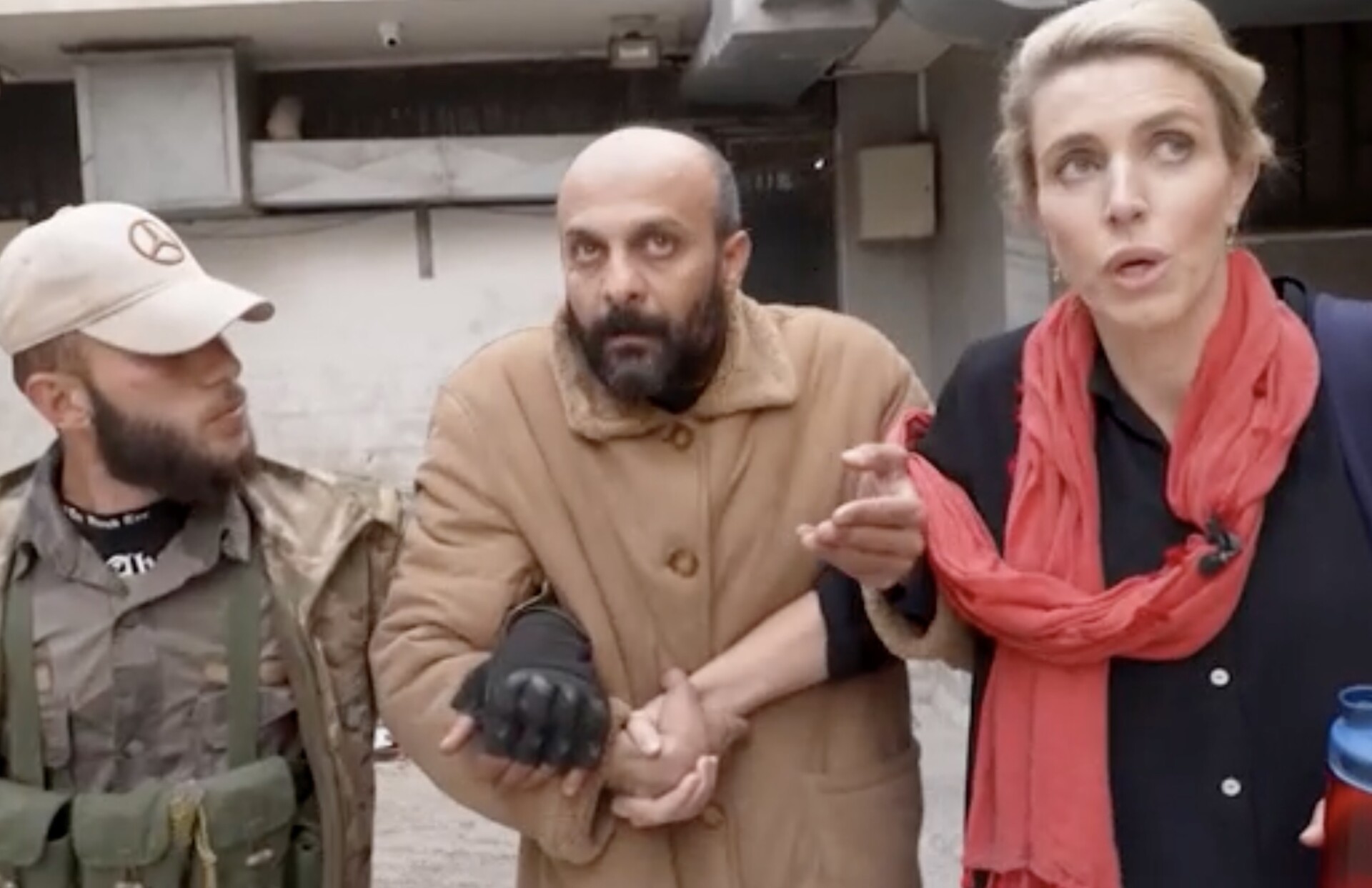The photojournalist Don McCullin confided that only once in his long and distinguished career had he recreated a photograph. He did so in a thoughtful and slightly pained way, knowing he had transgressed his fundamental conviction that “photography is the truth”. The picture in question was of a dead North Vietnamese soldier. McCullin had brought together the man’s personal possessions, including a photo of his sweetheart, and placed them around his lifeless body. “I thought I would make a statement for this soldier,” the photographer said.
If CNN foreign correspondent Clarissa Ward has similar moral qualms about overly hamming it up in her own war reportage, it’s not something she’s ever publicly acknowledged. For last week, Ward and CNN were responsible for producing a piece of misinformation that was as flagrant as it was theatrical. The misinformation in question was a report showing a Syrian man being freed from a Damascus prison previously controlled by the recently deposed Assad regime.
In the report, Ward and her team spot something unusual in one of the prison cells: a large blanket. “Is there someone there?” Ward asks twice. “Or is it just a blanket?” As CNN’s armed rebel-escort approaches, a man pops out from the bulge and instantly puts his hands up. “I’m a civilian,” he says, looking like the proverbial rabbit in the headlights. The camera quickly pans to Ward, who is visibly shaken, placing a quivering hand on her chest. As the captive is led out of the prison, he says: “Oh God, there is light!” “In nearly twenty years as a journalist, this was one of the most extraordinary moments I have witnessed,” Ward wrote on X last week.
But a week is a long time in journalism, and it now transpires that the man under the blanket wasn’t a civilian, much less a victim of Assad’s brutal regime. In fact, he was a former intelligence officer in the pay of that very regime, named Salama Mohammad Salama and not Adel Ghurbal as Ward had originally reported. CNN has now belatedly acknowledged that the story was not what it initially seemed.
When I first saw Ward’s report, it looked to me so elaborately staged that I was seized by a prolonged laughing fit. I was not alone in doubting the veracity of the scene. “This is clearly staged and only discredits the reality of the victims on the ground,” wrote one poster on X a day after the report had aired. Another, on the same day, acidly inquired: “Have you determined what his job was in the Assad regime?”
But there is seemingly no accounting for credulity, and less sceptical viewers were struck by the emotional authenticity of the report. Syria expert Charles Lister, for example, was aghast. “My God,” he exclaimed on X in a caption above the report. Journalist Katrin Eigendorf was similarly moved: “Amazing moment, Clarissa, that tells us so much about the cruelty of the Assad regime.”
Except that it didn’t, and in fact ended up saying far more about Ward and CNN’s sloppy journalistic standards. Ward, for her part, has remained tight-lipped. On Monday, she wrote on X: “We can confirm the real identity of the man from our story last Wednesday as Salama Mohammed Salama.” If this was an apology or recognition that she had got her facts wrong, it was a strangely uncontrite way of expressing it. Other reporters would surely have been mortified by being deceived in such a blatant way, and shown some humility afterwards.
In The Journalist and the Murderer, Janet Malcolm describes the journalist as “a kind of confidence man, preying on people’s vanity, ignorance, or loneliness, gaining their trust and betraying them without remorse”. But it’s also true that journalists themselves are acutely vulnerable to deception both by their sources and by the voice inside their head that is desperate to believe them.
What marks out some of the best journalists is not their immunity to deception, but instead their willingness to openly acknowledge it when it happens and to reflect on how to better avoid it in the future. If the mainstream media is no longer trusted by a large number of people, it’s because of its numerous errors, ranging from risible coverage of “peaceful” BLM protests to alarmist reporting on Covid. But it’s also because of journalists’ reluctance to properly register when and how they have got things wrong.










Join the discussion
Join like minded readers that support our journalism by becoming a paid subscriber
To join the discussion in the comments, become a paid subscriber.
Join like minded readers that support our journalism, read unlimited articles and enjoy other subscriber-only benefits.
Subscribe